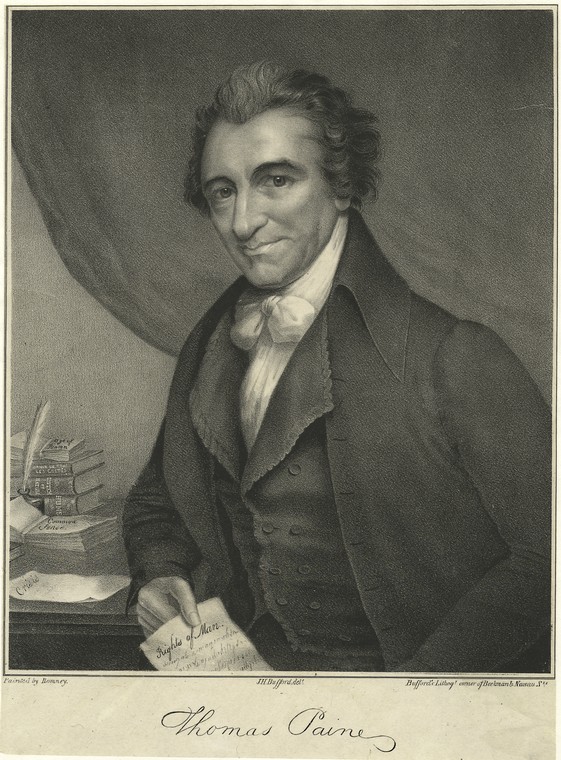Thomas Paine and "Common Sense"

Paine’s writings, especially Common Sense, helped the American cause in the Revolution, and John Adams credited him with a crucial role in the winning of that war.
Paine was not shy in expressing his opinions, and his writings about religion made him unpopular. Here are some of his words from his most famous works:
"When we are planning for posterity, we ought to remember that virtue is not hereditary."
"It is of the utmost danger to society to make it (religion) a party in political disputes."
"These are the times that try men's souls. The summer soldier and the sunshine patriot will, in this crisis, shrink from the service of their country; but he that stands it now, deserves the love and thanks of man and woman. Tyranny, like hell, is not easily conquered; yet we have this consolation with us, that the harder the conflict, the more glorious the triumph. What we obtain too cheap, we esteem too lightly: it is dearness only that gives every thing its value. Heaven knows how to put a proper price upon its goods; and it would be strange indeed if so celestial an article as FREEDOM should not be highly rated."
"If there must be trouble, let it be in my day, that my child may have peace."
"I speak an open and disinterested language, dictated by no passion but that of humanity. To me, who have not only refused offers, because I thought them improper, but have declined rewards I might with reputation have accepted, it is no wonder that meanness and imposition appear disgustful. Independence is my happiness, and I view things as they are, without regard to place or person; my country is the world, and my religion is to do good."
"All national institutions of churches, whether Jewish, Christian, or Turkish, appear to me no other than human inventions set up to terrify and enslave mankind, and monopolize power and profit."
"It is only by the exercise of reason that man can discover God."
"The most detestable wickedness, the most horrid cruelties, and the greatest miseries, that have afflicted the human race have had their origin in this thing called revelation, or revealed religion."
Read E-Books with SimplyE
 With your library card, it's easier than ever to choose from more than 300,000 e-books on SimplyE, The New York Public Library's free e-reader app. Gain access to digital resources for all ages, including e-books, audiobooks, databases, and more.
With your library card, it's easier than ever to choose from more than 300,000 e-books on SimplyE, The New York Public Library's free e-reader app. Gain access to digital resources for all ages, including e-books, audiobooks, databases, and more.
If you don’t have an NYPL library card, New York State residents can apply for a digital card online or through SimplyE (available on the App Store or Google Play).
Need more help? Read our guide to using SimplyE.
Comments
Thomas Pain
Submitted by Anonymous (not verified) on February 2, 2012 - 5:33pm
Tom Paine and the Village
Submitted by Harry (not verified) on February 5, 2012 - 12:23am